21st Century Law—Regulatory Hurdles
In part due to the global marketplace and developing technologies, many legal problems are intertwined with issues beyond a lawyer's or law firm's expertise. In such circumstances, legal problems are best addressed in collaboration with nonlaw professionals. Nonlawyers are currently providing services addressing legal problems, most notably via the online marketplace, without any regulation. The traditional law firm business model and current regulatory systems and rules are ineffective in fostering collaboration while protecting the public.
The Vision
Modernized, more transparent, adaptable, and accountable regulation of the legal profession that is responsive to both the risks and benefits of the use of existing and emerging technology and new business models for legal service delivery. Modernized rules of professional conduct that apply to the use of technology and the evolving marketplace, and are clear, coherent, and consistent. A state bar association that members can count on to help them navigate the rapidly-changing legal marketplace and deliver services to their clients most cost-effectively, consistent with long-standing ethical standards that protect the public.
Basic Elements of the Plan
- Create a more responsive system for ethical guidance as technology poses new questions about the application of the rules of professional conduct.
- Continuous review of the rules of professional conduct and regulations to eliminate unnecessary barriers to innovation, consistent with the highest standards of ethical obligations to clients and the public.
- Redistribute State Bar of Michigan resources from traditional bar association service delivery toward a greater focus on technological expertise.
- Develop proactive, preventative, and client-focused policies and strategies aimed at the promotion of ethical conduct, practice management skills, prevention of misconduct, and improvement in client satisfaction, using state and national disciplinary data.
- Encourage and support interpretations of the current rules of professional conduct and the development of rules that promote new models of service delivery (e.g., limited scope representation) and improve accountability (e.g., guidance on fee agreements).
First Steps
- Implement a high-quality, comprehensive limited scope representation system, including guidelines, attorney and client education, rules and commentary, and court forms focusing on civil cases.
- Incorporate certified limited scope representation (LSR) training component into both the SBM online directory and MLH, and ultimately into the unified online legal services platform.
- Create an efficient, responsive SBM system for advisory, prospective review of fee arrangements, in collaboration with the attorney discipline system; enhance education of members regarding existing ethics opinions about fee arrangements and options.
- Draft amendments to Michigan Rule of Professional Conduct (MRPC) 1.5 to include a definitional section on alternative fee arrangements and to clarify obligations for fee explanations in engagement letters, for consideration by the Representative Assembly.
- Develop clearer ethical guidance concerning online marketing.
- Amend commentary to MRPC 1.1 to promote tech competence in legal practice for consideration by the Representative Assembly.
- Develop and evaluate multidisciplinary (MDP) business models for family, probate, real property for consideration by the Representative Assembly.
- Evaluate whether to amend applicable rules, statutes, and regulations and standards governing lawyers without Michigan licensure who are practicing without examination in ADR and representing organizational clients and handling federal law matters.
- Develop proactive management-based regulatory measures to help lawyers avoid ethical misconduct.
- Create an arbitration program to resolve attorney-client fee disputes.
- Create a client fee dispute mediation program, except for MRPC 8.3 violations.
- Develop SBM Tech advisor or SBM department to assist lawyers in complying with MRPC 1.1.
- Identify essential technological competencies by practice type, develop and update curricula, including cybersecurity, cloud computing, e-discovery, internet-based investigations and marketing, and "new law" technology, and encourage ongoing training on the use of existing and emerging technologies and court systems.
- Determine the practicality of a rule-based definition of the practice of law.
- Determine the feasibility and usefulness of regulating the entire spectrum of legal service providers (from registration to full licensing).
- Use formally-adopted regulatory objectives as a tool to rigorously evaluate the effectiveness of current and proposed regulatory measures.
Key Innovations
Comprehensive LSR system with LSR standards, coordinated with referral network
Better technology-based support for members by reallocating SBM resources
Proactive, preventive focused disciplinary system
Thinking Through the Problem
The modern era of lawyer regulation began about a century ago, at a time when most lawyers were solo general practitioners and advertisement primarily consisted of hanging out a shingle. The telephone was the latest technology, and most lawyers practiced law in just one jurisdiction -- typically the same jurisdiction in which they were born, raised, and studied law. The raw materials of legal practice—court opinions, statutes, and court rules—were locked up inside law offices and law libraries. Most significantly, there was little question in the profession and in the public's mind about what constituted the practice of law and who was entitled to engage in it.
The basic elements of lawyer regulation today remain the same as a century ago: state-jurisdiction locus, an admissions process requiring passage of an examination of character and fitness and a single post-graduate bar exam primarily testing knowledge of black letter law, a disciplinary system based on prosecuting and adjudicating violations of the rules of professional conduct, and the enforcement of a prohibition on the unauthorized practice of law. This system has weathered disrepute (the ABA's 1970 Clark Committee called the state of professional attorney discipline "scandalous"), the massive infusion of obstreperous baby boomers into the professional bloodstream, the expansion of lawyer advertising to billboards, television, and the Internet, and decades of enfeeblement of the enforcement of the unauthorized practice of law by court rulings. There is good reason to wonder whether the challenges presented by a 21st century proliferation of nonlawyers offering various forms of legal services online, coupled with the lack of consensus about what constitutes the practice of law, will be the straw that breaks the 20th century regulatory model's back.
Regulatory Objectives. In discussions about regulatory objectives, Task Force participants agreed that regulatory objectives are beneficial and should address inclusion, diversity, and cultural competency, but debated the value of advocating for specific regulatory objectives, such as those recently adopted by the American Bar Association (ABA), in advance of the full package of Task Force recommendations. In the end, the importance of developing a broad consensus on objectives led to the recommendation for the development of regulatory objectives consistent with the overall recommendations of the Task Force, rather than the endorsement of specific objectives.
The trend lines on the proliferation of online purveyors of legal services suggest the need for urgency. Hundreds of millions of dollars in venture capital are being invested in unlocking the "latent legal market" of potential modest and moderate means consumers who currently avoid lawyers because they are unaware of their own legal needs or fear the cost of hiring a lawyer. This market has been estimated at $45 billion or higher. There are promising models addressing the latent legal market in ways that do not compromise quality or ethics. Unfortunately, one way to lure potential consumers into the legal marketplace is to offer fixed-cost, cut-rate "services" that may or may not meet professional standards and may even exacerbate legal problems. To date, the regulatory structure has not figured out how to respond effectively to that challenge. Where the boundaries lie between the authorized and unauthorized practice of law is unclear, and timely ethical guidance about emerging market developments and new technology has not been a focus or priority of the regulatory system.
Without consensus on objectives, decisions about whether and how to regulate nonlawyer service providers (e.g., paralegals, lay navigators, project managers, etc.) would be premature. While that consensus is being developed, there are immediate areas that are ripe for action, such as limited scope representation, fee agreements, and admissions changes concerning foreign lawyers, to better position Michigan within global business markets. Providing guidance for lawyers about the competent, ethical use of technology can also begin immediately.
Ethical Guidance in the Face of Rapid Change. Market research confirms that consumers want a clear understanding of the value and as much certainty as possible regarding the cost of legal services. The traditional billable hour pricing model and many standard fee agreements provide neither. Other jurisdictions have used limited scope representation effectively to expand service to underserved populations. Its use in Michigan is ripe for advancement and offers an opportunity for all parts of the regulatory structure—the Michigan Supreme Court, the disciplinary system, and the State Bar—to develop coordinated strategies for making the regulatory structure more responsive to innovative service delivery initiatives. A suite of ideas to improve clarity concerning fee arrangements and engagement letters and boost consumer confidence can also be quickly readied for consideration.
The rules of professional conduct, traditional legal practice, the conventional regulatory scheme, and new technologies have not made for a comfortable fit. The paces clash and new questions proliferate. Does email pose a particular threat to preserving client confidentiality? Are there new risks to ethical behavior created by particular technologies? What is a lawyer's liability for a particular technology's failure? What constitutes technological competency in the practice of law and how does competency relate to professional ethics? The Task Force proposes a proactive response by the State Bar in response to these questions.
Although the Task Force does not make a general recommendation concerning the ban on nonlawyer ownership interests in law firms, it recommends moving forward on a limited basis to test such models. For example, consideration of the value of fee-sharing in any area where evidence shows that consumer needs are best met by a team of professionals working together, such as service to elderly clients in need of legal and social services.
In the end, the goal of regulation in the 21st century is the same as it was in the twentieth: preserving, protecting, and, as much as possible, perfecting the operation of the justice system. Achieving that goal requires new tools and a new, persistent focus on change.
Listening to Voices of Change
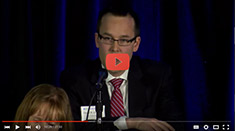
Daniel W. Linna Jr. Law practice analysis. (0:2:15)

Legal spend management software for law firms (Jan 2015). (0:2:05)
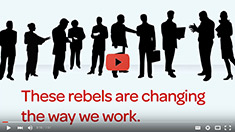
Stephanie Kimbro. Leverage the Internet to serve your clients & grow your practice. (0:7:07)
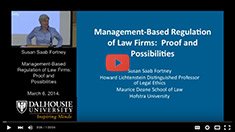
Susan Saab Fortney. Proactive regulation of lawyers (Mar 2014). (1:00:04)
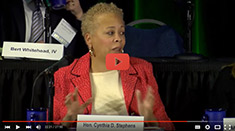
Hon. Cynthia D. Stephens. Speciality courts. (0:1:40)
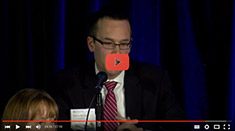
Daniel W. Linna Jr. Court business process. (0:1:24)
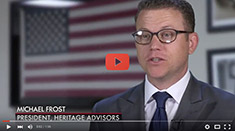
Michael Frost. Multidisciplinary practice (Nov 2015). (0:1:06)
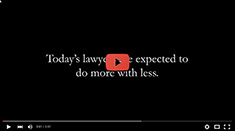
What is legal tech assessment? (0:3:01)
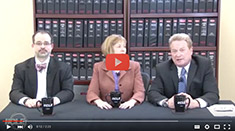
Shay Jacobson & Ben Neiburger. A multidisciplinary approach to elder law (Oct 2014). (0:2:23)
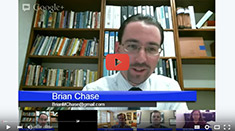
Brian Chase. Law office technology (Dec 2013). (0:52:25)
What 21st Century Task Force & Committee Members Had to Say
"The ongoing discussions fostered by the Task Force for which I am particularly encouraged are the recommendations regarding proactive or preventative measures that help lawyers avoid ethical mis-steps and serve a consumer protection function, the Justice Innovations Center, and other initiatives that will position the profession to respond to changes in the marketplace and give lawyers assistance and guidance in navigating the challenges and opportunities they face."
Mark A. Armitage, Regulatory Committee
"Alternative fee agreements do not spell doom for the profitability of lawyers, and we should be open to exploring them. It is very important to educate our members about ways of billing for our services that recognize the value we bring to the table, because Legal Zoom and other marketplace disruptors do not replace our judgment and skills as individual lawyers. We may need to look at our regulatory framework because a real concern is that we think an alternative fee is reasonable, and our client may think it is, but our regulatory bodies may not agree."
Erika L. Davis, Practice Committee
"Limited scope representation, or unbundling, comports with the overarching goals of the Task Force because it creates opportunities for greater access to legal services. Lawyers engaged in this type of client-lawyer relationship can pare their services to meet very specific legal needs of the consumer. Although the scope of the representation is limited, the legal consumer receives affordable legal services that must be provided competently.
Elizabeth A. Silverman, Task Force Member
"We need greater recognition and acceptance of technology and how it enables solo and small firm practice, including virtual practices, to provide efficient client services. We need to make it clear that no bricks and mortar office is required, cloud storage of data is authorized, cloud-based applications are OK to use, and an entirely paperless practice presents no ethical issues if data is properly backed up. I support the Task Force's call for amending MRPC 1.1 to add a comment regarding technology as part of a lawyer's duty to provide competent representation to a client."
Scott G. Bassett, Practice Committee & Regulatory Committee